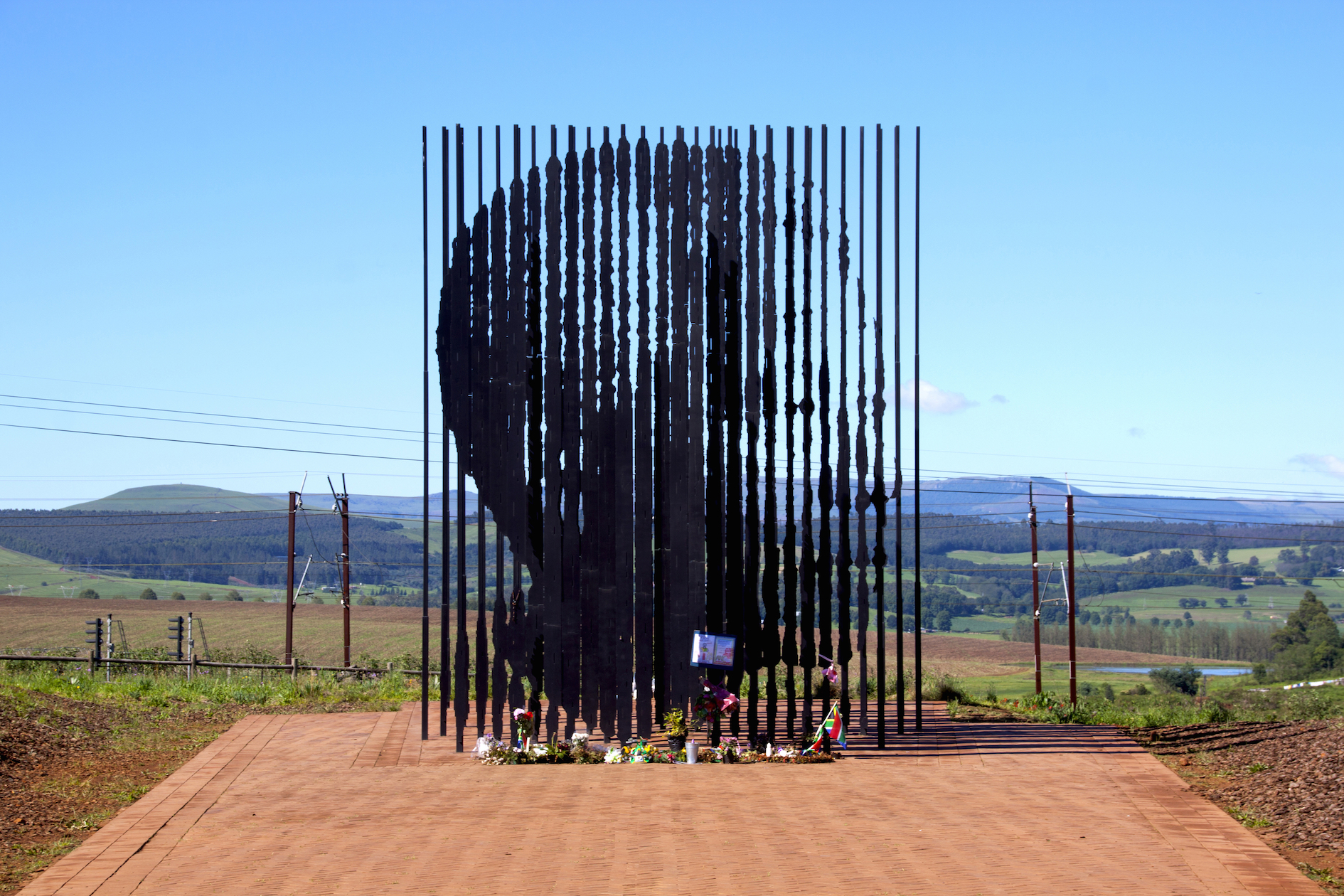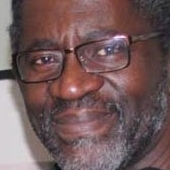

November 6th-7th, 2015
8th International Cultural Studies Conference
of the Department of Hispanic Languages and Literatures,
University of Pittsburgh
This conference on post/colonialism and the pursuit of freedom in the Black Atlantic is an interdisciplinary event of wide geographic scope, which engages the legacy of colonialism and slavery, and invokes the continuing crises being experienced by the no-longer-new nation-states it addresses. While its immediate context evokes the parameters of dominance and extraction under contemporary globalization, its objective is to make a contribution to postcolonial critique from the standpoint of literary and cultural analysis. In disciplinary and institutional terms, the conference also wishes to expand the understanding of the field of Hispanic Studies to include, in a more overt manner, not only Afro-Latin Americans, but also the Hispanophone and Lusophone populations of Africa and the Caribbean, while at the same time giving consideration to similarly interpellated Francophone populations across the Atlantic.
The teachers and researchers involved will share their insights on the critical situations faced by African and Afro-diasporan populations in emerging and formerly colonized nations, in the context of the globalized neoliberal order of the end of the twentieth century and the beginning of the twenty-first. Their primary sources will be the creative literature and the political discourse that underwrote the anticolonial project, as well as that which sought to assess, endorse, or critique the postcolonial state/s after the attainment of formal independence.
As they focus on African or Afro-diasporan populations in Latin America, the Caribbean, and Luso-Hispanic and Francophone African countries, they will attempt to gauge the degree to which formal independence, coming out of a variety of practices of opposition and resistance, lasting centuries in some cases, has translated into freedom, security, and a “good life.” The conference’s working supposition is that, similar to the disenchantment and oft-times renewed forms of oppression experienced by the formerly enslaved after Emancipation in the nineteenth century in this hemisphere, twentieth-century independence, while delivering the nation-state into the hands of the formerly colonized, also brought with it new forms of political and economic subjection as the new nations strove after the socio-economic and technological teleology of “progress,” as well as modern political models of governance that often degenerated into elitism, ethnocratic rule, and outright dictatorship. As it focuses on the creative literature and the political discourse associated with the “problem-space” (Scott) of decolonization and the Postcolony (Mbembe), the conference will attempt to establish the archival and historicist value of the work of a wide array of Africana creative writers and producers of culture, as well as its “poeticist” value; that is, its articulation of a liberationist episteme of “action-oriented” potential (Paget Henry), that informs everyday life and (still) inspires hope for the multitude of ordinary folk across Afrodiasporan borders.
The conference takes cognizance of the UN designation of the years 2015-2024 as the International Decade for People of African Descent.
Ballroom A, University Club
Daniel Balderston, Chair, Hispanic Languages and Literatures
John Cooper, Dean, Dietrich School of Arts and Sciences, University of Pittsburgh
Jerome Branche, Convenor, Hispanic Languages and Literatures
Ballroom A, University Club. Chair, Benita Sampedro
Carmen Fracchia, Birkbeck College, University of London: “Picturing the Afro-Hispanic struggle for freedom in early modern Spain”
Baltasar Fra Molinero, Bates College: “Black Atlantic Identities and the Spanish Inquisition”
Luis Trindade, Birkbeck College, University of London: “The Lines of Anti-Colonialism: The Circulation of Militant Filmmakers During ‘the long 1960s’”
Chair, John Walsh
Adlai Murdoch, Tufts University: “French Caribbean Departmentalization as Neocolonial Domination: From Anticolonial Resistance to the Representation of Creolized Identities”
Madhu Krishnan, University of Bristol: "(Re)mapping Black Paris: African space in the imperial centre"
Susan Andrade, University of Pittsburgh: Le Ventre de l’Afrique: A New Tendency in African Fiction
Conference Room B (2nd floor) Blue and Gold Buffet (lunch provided for conference presenters and chairs)
Chair, Magdalena López
Benita Sampedro, Hofstra University: “Health, Raciality and Modernity in Equatorial Guinea”
Luis Madureira, University of Wisconsin: “Adrift between Neoliberalism and the Revolution: Cape Verde and the South Atlantic in Geronimo Almeida’s Eva”
Robert Simon, Kennisaw State University: “A Post-Colonial, National, and Post-National Discourse in Angolan Poetry in the Work of Manuel Rui”
Chair, Juan Duchesne
Agustín Lao-Montes, University of Massachusetts at Amherst: “Beyond the Capitalist/Socialist Divide? Afrodescendant Currents and Decolonial Practices of Power/Knowledge in Colombia and Cuba”
Juliet Hooker, University of Texas, Austin: “Gendering Quilombismo: Slavery, Racial Democracy, and Black Genocide”
Tanya K. Hernandez, Fordham University School of Law: “Anani Dzidzienyo: The Embodiment of African/African-diaspora Anti-Colonial Activist Scholar”
Babcock Room, 40th floor, Cathedral of Learning (dinner provided for conference participants and chairs)
Ballroom A, University Club
Chair, Jerome Branche
Linden Lewis, Bucknell University: “Toward a Postcolonial Critique of Caribbean Epistemology”
Myriam J. A. Chancy, Scripps College: “Autochthonomies: A New Model of Indigeneity for Understanding African Diasporic Subjectivity”
Ronald Judy, University of Pittsburgh: “‘What Kind Freedom is this?’ From Haiti to Tunisia”
Chair, Linden Lewis
Cary Fraser, Appalachian State University: "Reconstituting Self, Reconstituting Society."
Robert Spencer, Manchester University: Origins and Representations of the Dictatorial State in Postcolonial Africa.
College Room, University Club. Blue and Gold Buffet (lunch provided for conference presenters and chairs)
Chair, Baltasar Fra Molinero
Emmanuelle Santos, University of Warwick: “From Lusotropicalism to Lusophony: Brazil-Angola Cultural Exchanges under the Sign of Coloniality.’
Magdalena López, University of Lisbon: “Post-Utopian Imaginaries in Lusophone Africa and the Hispanic Caribbean: Revolutionary Identities in Crisis”
Anna Mester, University of Michigan: “Iberian Cartographies of Discipline: Incomplete Decolonization Examined through Prisons and Penitentiaries in Equatorial Guinea”
Jerome Branche, Final Reflections
Roger Robinson, Dub Poet
Ballroom B, University Club.
Ballroom B, University Club. For conference attendees and participants.
Sponsored by the Center for Latin American Studies (CLAS), the Global Studies Center (Global Academic Partnership), the Office of the Provost, the Office of Graduate Studies and Research, the Department of Hispanic Languages and Literatures, and the University Center for International Studies. Special thanks to David Mundie for assistance with the web site.
Contacts:
 Jerome Branche, branche@pitt.edu. Jerome is Professor of Latin American Literature and Cultural Studies in the Department of Hispanic Languages and Literatures, University of Pittsburgh. His teaching and research interest is in racialized modernity and the way creative writers imagine and articulate slavery, freedom, the nation, being, and gender.
Jerome Branche, branche@pitt.edu. Jerome is Professor of Latin American Literature and Cultural Studies in the Department of Hispanic Languages and Literatures, University of Pittsburgh. His teaching and research interest is in racialized modernity and the way creative writers imagine and articulate slavery, freedom, the nation, being, and gender.